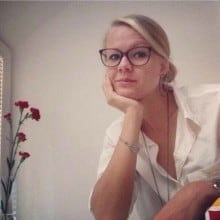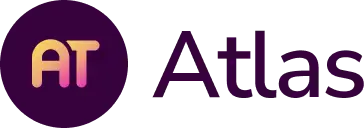by Gudrun Bjorg Ingimundardottir, Head of Middle School, St. Nicholas Alphaville
How to cultivate a critical outlook on life
Almost all educators — and in fact, almost all of us — experienced some form of Personal, Social, and Health Education (PSHE) during our years as middle school and/or high school students. PSHE was the program that was meant to prepare us for life outside the classroom, and usually included advice on how to navigate the complexities of moving into adulthood including relationships, personal finance and how to find a job once school released us from its grips.
While most programs were delivered with the noblest intentions, and many were no doubt successful in providing useful guidance on how to cope with adulthood, I have often felt like these courses would sometimes tend to fall short of the mark, in that they served to tell students what they should and shouldn’t do, but perhaps failed to cultivate a mindset in students that would allow them instead to reach these conclusions themselves through the use of critical thinking and a sense of ethics and morality.
As the head of an aspiring IB middle school, and a longtime member of the International Baccalaureate family, who has also done a great deal of research into the development of transferable and marketable skills on secondary and tertiary level, I began wondering how I could incorporate the philosophy of the IB into my PSHE lessons, as well as shake the increasingly constant feeling that I was just preaching to the children about how they should behave instead of letting them come to these conclusions themselves.
With a fiancé who is both a Theory of Knowledge examiner and a teacher, and after years of teaching the IB DP English B curriculum it had become increasingly more difficult for me to look past the merits of the ToK program as a means of addressing assumptions and biases, as well as teaching approaches to thinking that could prove useful in the daily grind as students grow up, make choices, fall in love, look for jobs, and even face some of the harsher realities of life in the 21st century.
As the idea gradually took shape in my head, I realised that not only could I create a program that would provide an enhanced and critical approach to PSHE, but also help students prepare for their entry into the world of Theory of Knowledge as they join the Diploma Programme. This gradual approach might help them from being taken by surprise by the ways of thinking (and knowing) that they will encounter — which can often be overwhelming as many deeply held beliefs or assumptions are called into question throughout the course. Therefore, when developing my new and improved PSHE program, I looked at the following aspects of both PSHE and Theory of Knowledge, and how they could blend together into one coherent program.
The new core themes from the 2022 Theory of Knowledge course
When it came to structuring the program, I decided to look at the five new core themes provided in the Theory of Knowledge guide that is scheduled for 2022. While the guide is yet to be released, I found that the titles in and of themselves provided ample ideas for structure and links to many aspects of traditional PSHE curricula. A sample of these are provided in the table here below, although as the program grows and students provide their own input, there are bound to be more avenues to explore that provide opportunities for introspection and reflection through a critical prism.
Me as a knower and a thinker | Learning skills, metacognitive skills, reflection skills, self-awareness |
My perspectives, biases and assumptions | Racism, bullying, gender equality, relationships |
Where do our values come from? | Ethics, morality, “doing the right thing”, charities, priorities, relationships |
How can we navigate the world? | Preparing for job seeking, university applications, life skills |
How do we know when we are being manipulated, or “spun”? | Fake news, politics, elections, media and information literacy |
These core themes would be addressed in every one of the five years of the middle school program, but each core theme would be the foundation for a different topic or aspect of personal development that is appropriate for the age and maturity of the students as they mature into teenagers.
Personal vs. shared knowledge
Middle School students are colourful, varied, cultured, and creative individuals who already possess a wealth of knowledge and experiences that they apply in their daily lives to determine their stance on various issues, as well as to make the right choices in terms of behaviour, their future, or in other, perhaps more minor, matters. What is important when this knowledge is discussed on middle school level is that students learn how to make the distinction between their personal knowledge, or their experiences and personal involvement in matters close to them, and the shared knowledge that they partake in as members of groups or communities.
Not only will this allow them to develop their international mindedness as they look beyond their own culture, but also encourage them to compare and contrast their personal knowledge with shared knowledge that can be bound up in factual information, and also the shared knowledge that comes from their culture or the social group they belong to. What determines their values? What determines the values of others? What is the validity of their values vs. those of others?
Action and reflection
How all of this is carried out is through the presentation or creation of real-life situations that call on the students’ ways of thinking or processing information in ways that link to both their knowledge of academic disciplines as well as their personal ways of knowing such as memory, intuition, and sense perception. Students are presented with a knowledge question that they will then engage in debates or Socratic discussions about.
As they try to deconstruct their approach to the situation and get to the root of why and how they know what they know about the world, about their relationships with other people and, and I would argue that this is one of the most important parts of the course, their sense of right and wrong. They would then discuss possible approaches to various situations, and how they arrive at conclusions about certain actions to take depending on the context and consequences of each situation.
In the beginning, students will be provided with real life situations to explore, but as they get older, they will be able to come up with those themselves and connect them to their personal and shared knowledge, as well as the various ways of knowing.
What happens now?
The development of the program is still in its early stages, and there will be various kinks to iron out along the way, especially as students need to engage in various activities in order to “unlearn” some of their ideas and reconsider their view of the world, but it is certainly hoped that in this way, students can become more self aware and more responsible for their own choices in life. Rather than simply teaching students that bullying is wrong, that taking drugs is bad, or that saving money is a good idea, students now get to reflect on why this is known, how it is known, or why it might not be considered to be so by others. Knowledge is key, but so is questioning it.
[box] FariaPD supports teachers and leaders around the world with hands-on, active and creative professional development experiences. Join one of our online or in-person professional development events, each designed to support the unique goals of your school or district. FariaPD is part of Faria Education Group, an international education company that provides services and systems for schools around the world including ManageBac, a curriculum-first learning platform, OpenApply, an online admissions service, and Atlas, a tailored curriculum management solution for schools. [/box]

ABOUT THE AUTHOR
Bilingual (English/French) and trained in PYP, IMYC, MYP, IGCSE and IB DP, Gudrun is a teacher and leader with a strong interest in professional development and PSHE. She is fluent in three languages and holds postgraduate degrees in education. She has presented her research at education conferences in Nepal, Hong Kong and Kenya, and her work has been published in international peer-reviewed journals. Her motto: Never stop learning.

